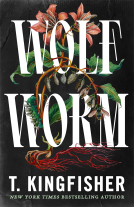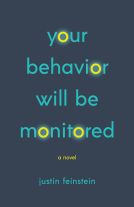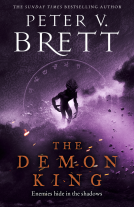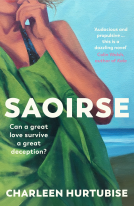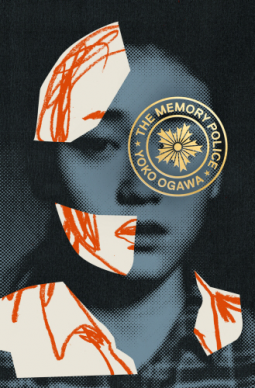
The Memory Police
by Yoko Ogawa
This title was previously available on NetGalley and is now archived.
Send NetGalley books directly to your Kindle or Kindle app
1
To read on a Kindle or Kindle app, please add kindle@netgalley.com as an approved email address to receive files in your Amazon account. Click here for step-by-step instructions.
2
Also find your Kindle email address within your Amazon account, and enter it here.
Pub Date 15 Aug 2019 | Archive Date 26 Sep 2020
Random House UK, Vintage Publishing | Harvill Secker
Talking about this book? Use #TheMemoryPolice #NetGalley. More hashtag tips!
Description
**SHORTLISTED FOR THE 2020 INTERNATIONAL BOOKER PRIZE**
'A masterpiece' Guardian
Discover a timely mystery about the loss of every day existence by one of Japan's greatest writers that featured in the Entertainment Weekly ‘Quarantine Book Club’.
Hat, ribbon, bird, rose. To the people on the island, a disappeared thing no longer has any meaning. It can be burned in the garden, thrown in the river or handed over to the Memory Police. Soon enough, the island forgets it ever existed.
When a young novelist discovers that her editor is in danger of being taken away by the Memory Police, she desperately wants to save him. For some reason, he doesn’t forget, and it’s becoming increasingly difficult for him to hide his memories. Who knows what will vanish next?
The Memory Police is a beautiful, haunting and provocative fable about the power of memory and the trauma of loss, from one of Japan’s greatest writers.
'One of Japan’s most acclaimed authors explores truth, state surveillance and individual autonomy. Echoes 1984, Fahrenheit 451, and 100 Years of Solitude, but it has a voice and power all its own' Time Magazine
‘A quiet dystopia of loss and confusion rather than repression, perhaps better suited for a world of misinformation and environmental degradation than the Big Brother nightmares of last century’ Slate
Available Editions
| EDITION | Other Format |
| ISBN | 9781846559495 |
| PRICE | £14.99 (GBP) |
| PAGES | 288 |
Average rating from 77 members
Featured Reviews
I just loved this book, the writing is absolutely mesmerising, I just couldn't put it down.
The book is set on an island in Japan. Things are disappearing from the island and once gone no one remembers they even existed - except for the few, and they must hide from the Memory Police.
Whilst I was reading this book it reminded me of so many other stories and experiences. The way the characters can't remember items once they disappear reminded me so much of someone with Alzheimer's. At first I thought that all the islanders must have Alzheimers disease. The people that go into hiding and are hunted down by the Memory Police reminded me of Anne Frank and the persecution as people were led away.
The book is set in Winter and you can feel the chill as you read, both in the weather and the storytelling. I found it most atmospheric to be reading it at Winter time as the author is describes the snow scenes. Although you don't get to know the characters too well what you do get is their thoughts and feelings and their experiences of loss at a very deep level.
There is also a book within the book. It's one that the novelist is writing and soon there are similarities between her writing and what is happening on the island. I loved the book within just as much as the main story especially as it brought back memories of typing school and the use of typewriters.
I really could just read it all over again as it was such a lovely experience.
 Claire M, Reviewer
Claire M, Reviewer
The Memory Police are a bureaucratic menace that are slowly making things on the island disappear and with them all memory of those things in the inhabitants. Unless you are one of those whose memory somehow stays intact, something that puts your life in danger, the reason that those people begin to disappear.
Our narrator has lost both parents, taken by the police and no longer heard of, but her mother has tried to preserve and hide some of the things that disappeared. A novelist, she accepts and continues to adapt to each disappearance, with the help of an old man and the company of the neighbour's dog. Her editor R, goes into hiding due to his ability to remember and tries to instill in her the importance and value of memory, but while sometimes a memory returns, it no longer has any emotional significance or meaning.
It's a kind of dystopian novel that focuses more on the survival of the citizens than on exploring the tyranny that oppresses them, the Memory Police don't seem to be afflicted with the consequences of the disappearances and we don't understand what motivates them, there doesn't seem to be any purpose, merely an exploration of those aspects of humanity of the oppressed to survive and care for one another, whether that means putting one's life at risk to hide someone who does retain memories, to seek out old memories at the risk of being caught, caring for an old man and a dog.
Some things are innate to humanity and no matter what afflicts us, we are endlessly adaptable, continuing to find ways to work around and/or accept obstacles, here presented in a somewhat absurd manner, highlighting our inability to fight against adaptability. We have no choice but to adapt, it's written into our genes, and this regime has somehow managed to find a way to control and rewrite them.
Alongside what is happening on the island's (sur)real world, our protagonist writes a novel about a woman taking typing lessons from a man who will put her in a tower, the chapters are interspersed throughout the narrative and provide another thought-provoking aspect to the wider story.
Each disappearance activates the reader's imagination and the novel provokes many questions that make this interesting to discuss.
It's a novel that I'll be pondering for a few more days, wondering what it was getting at, just as you think you've found some deeper meaner, it kind of gets erased, there are no conclusions...it's like short term memory loss and a literary version of mild cognitive impairment, an affliction all humans over 40.
 Alexis H, Reviewer
Alexis H, Reviewer
I think the strangest thing about this book is that you never get to find out the name of the protagonist, or her friend who is known only as "the old man". In fact, the only person in the book who has a name is the dog!
The unnamed protagonist is a novelist who lives on an (also unnamed) island. On this island, things disappear. Nobody knows what will disappear next; it could be anything. And once it has disappeared, the memory of that thing fades away until nobody remembers that thing anymore. The disappearances are controlled by the Memory Police, who are on the lookout for anyone who can still remember the things that have disappeared.
As things disappear, life becomes more difficult on the island. The story follows the main character's life and her experience of the disappearances.
The story is beautifully written, eloquent and delicately descriptive. The idea behind the book is a strange one, but it is surprisingly thought provoking. As different things disappear, you start to wonder how it would affect you, and whether you would miss those things. What would you really want to keep? Maybe there are some things you would actually like to disappear?
Because the story is quite thoughtful and delicate, it is also slow. Even when it seems like there is some danger or excitement in the story, it doesn't ramp up the feels very much at all. I enjoyed that style of writing though; I felt like I was in a little bubble reading this, even though it was quite unsettling at quite a few points because of what was happening on the island. And there is a lot happening on the island, but it happens in a slow and creeping manner right up until the end. Which I think is a perfect end, by the way.
I truly loved this book. It is very gentle and really quite poignant. It's a really unique story and I would recommend it to anyone who likes a thoughtful read.
 Cressida D, Book Trade Professional
Cressida D, Book Trade Professional
Carefully and beautifully constructed magic realist tale of a world where items go missing day to day, and their memories are erased somehow. Imagine a world where one day you lose the idea and the existence of 'bird' or 'ribbon'.
But some people seem to be immune, and the memory police are looking for them.
 Robert H, Reviewer
Robert H, Reviewer
Alright- this was not only a great read, but the idea and plot was unique. In a world full of books with very similar plots and covers - this stood out in every way. Five stars, wishing I could give 6.
 Samantha O, Reviewer
Samantha O, Reviewer
I’m really enjoying dystopian novels lately- maybe a bit of life imitating art? This didn’t disappoint- a frightening world where the Memory Police can remove memories at their whim. Although we never learn the characters names I still felt empathy towards what they were going through. I enjoyed this thoroughly
 Anthony S, Reviewer
Anthony S, Reviewer
A truly magical novel. A parable of modern times perhaps. Ideas of state surveillance and what it means to have independent thought or even existence. Mysterious and haunting - not easy to put down.
 Alan M, Bookseller
Alan M, Bookseller
‘The meaning isn’t important. What matters is the story hidden deep in the words. You’re at the point now where you’re trying to extract that story. Your soul is trying to bring back the things it lost in the disappearances.’
First published in 1994 with the original Japanese title ‘Hisoyaka na Kessho’ (roughly translated as ‘secret crystallizations’), Yoko Ogawa’s dystopian novel now gets an English translation from the ever-excellent Stephen Snyder. This is a quietly devastating study of an unseen authoritarian regime and its enforcers, the Memory Police of the title, and an island population that somehow tries to keep the one thing hidden away that can’t be controlled.
The island is unnamed, as are most of the characters. Our main narrator is a novelist, and the two main relationships she has in the book define her and her situation: R, her editor, who keeps his memories of those things which are disappeared and so is in constant fear of being found out; and the Old Man, the husband of the narrator’s late nurse, who becomes a father-figure to her. Within this narrative is our narrator’s own novel which she is writing, about a singer who loses her voice and takes up typing lessons, only for it to develop into a strangely-controlling relationship with her teacher. This story within a story gives an extra framework with which to view the book: people who are trapped, and the possibility within the creative process to forge a space where resistance to an overwhelming ideology is possible. Many residents of the island hide individuals, even whole families, who keep their memories, and our narrator hides R in a small, concealed room in her home. Ogawa herself has spoken of reading Anne Frank’s diary and there is a strong connection here with the trapped girl, whose only escape from the reality of horror was her writing.
The novel is lyrical, Ogawa’s prose a subtle and gentle observer of the events unfolding. The disappearances are quietly done, often disturbingly beautiful: roses are disappeared and the rivers fill with the entrancingly beautiful spectacle of millions of rose petals being washed out to sea; birds, too, disappear, and at one later point a solitary bird is fleetingly seen by our narrator but she is unable to remember what it is. As the novel progresses the disappearances pick up pace, and become alarmingly close to home, ending with some hauntingly moving images as the relationship between the narrator and her editor reaches its conclusion.
Ogawa is confident enough to leave the many questions each reader will have unanswered; we learn nothing of the regime behind the disappearances, the Memory Police being the symbol of this authoritarian rule. We have no idea just how these disappearances occur: how can an entire island population forget what a hat is, or what sweets taste like? And, perhaps disconcertingly for some readers, there is no neatly tied-up conclusion. The novel ends as it begins: quietly, lyrically, movingly. For me, this is where the power of the book resides, for this is more a subtle celebration of the artistic, creative spirit to face-up to what horrors confront it. Twenty-five years on from its original publication The Memory Police is, perhaps, even more relevant in today’s world. Anyone who comes to it will recognize the threats we face today: disappearing species and personal liberties, and the growing presence of extreme politics. How we confront that in our own ways is what matters. For our narrator, it is through her writing, as her editor assures her: ‘Each word you wrote will continue to exist as a memory, here in my heart, which will not disappear. You can be sure of that.’
This is a genuinely bewitching novel, hauntingly moving and beautifully crafted by the talented Yoko Ogawa. The questions it asks are much more important than any answers it gives, and for that it deserves to be read. A 5 stars must-read, for sure.
(With thanks to the publisher and NetGalley for an ARC of this title.)
 Titivillus B, Educator
Titivillus B, Educator
Breathtaking, this astounding novel presents a speculative world where objects and experiences are disappeared from memory, leaving behind existential cavities in the recollections and perceptions of the characters. The prose is tentative, elegiac and beautifully evocative of the loss, regret and formless nostalgia this engenders. This is masterfully counter- balanced by a meta-textual interlacing of the protagonist’s own novel which mirrors the motifs of control, identity and autonomy. I am going to tell everyone to read this canonical text. My students will certainly be studying it alongside Ishiguro, Angela Carter, Orwell and Atwood.
The Memory Police is a juggling act which sets readers up with a spectacle of a concept: something strange and unsettling, something obviously dystopian and thematically intriguing, before drawing out its performance a little but all the while encouraging you to fall for its protagonists in a true and meaningful way. At last, it enters deeply unsettling territory that will have you frantically turning pages to see how it could possibly end. There are certainly issues with tone and pacing, and yet you could not say for a moment that The Memory Police ever allowed you to relax; the fear of the unknown and the quiet anxiety the book infects you with never go away. And this book has a refreshing take on the dystopian formula, with an original concept and a message vague enough to encourage debate, and yet strong enough to have your brain ticking over for days after you put it down, until the urge to pick it up again searching for answers you might have missed becomes too much to bear.
It’s safe to say Yoko Ogawa has done it again: she has shown why she’s one of the best writers Japan has; how she takes a genre or an idea into her hands and moulds it into something human, something frightening, something raw, and something wholly new.
Full review here:
https://booksandbao.com/2019/08/12/review-the-memory-police-by-yoko-ogawa/
My thanks to Random House U.K. Vintage Publishing for an eARC via NetGalley of ‘The Memory Police’ by Yoko Ogawa, in exchange for an honest review. It has been translated from the Japanese by Stephen Snyder.
This is a strange, rather whimsical, dystopian tale that becomes increasingly surreal as it progresses.
It is set on an unnamed island where various things are disappeared from society. As one character explains these were “Transparent things, fragrant things … fluttery ones, bright ones … wonderful things you can’t possibly imagine.” When this happens things don’t cease to exist but they lose all meaning. The island populace instinctively knows to immediately discard any remnants in their possession and their memories quickly fade until the item is completely removed from the collective memory.
It’s a strange premise though after a few examples such as hats, perfume, birds and roses we understand how this process happens even if not why. Birds still physically exist though are no longer recognised when seen and all references to them are destroyed. Earlier, we learn that when perfume disappeared the island inhabitants poured away all their perfume. It seems almost as though they are automatons without free will.
A few people are able to retain their memories but they are taken away by the dreaded Memory Police. There is also a resistance that hides people from the Memory Police though at great risk to themselves.
The novel is narrated by an unnamed young woman who makes her living as a novelist. Her mother was one of those rare individuals who retained memory and tried to reawaken these in her daughter. We learn that she died while in the custody of the Memory Police. When our narrator learns that her editor, R, has memories of the disappeared items and is in danger of discovery as he is finding it increasingly difficult to conceal his memories, she undertakes to hide him.
Throughout the narrative there are excerpts from her latest novel about a young woman who is imprisoned by her typing teacher after he renders her mute. This story within a story is a dark fairytale reminiscent of John Fowles’ ‘The Collector’. Overall this novel with its totalitarian regime and compliant population joins the lineage of ‘1984’ and ‘Fahrenheit 451’.
‘The Memory Police’ is also a testimony to the richness of world literature and has a timeless, universal feel to it. I was surprised to find that it had been originally published in 1994 in Japan and only just been published in English for the first time.
I read that Ogawa had been profoundly moved by ‘The Diary of Anne Frank’ when she was a teenager and eventually transmuted her imagining of what Anne had experienced into ‘The Memory Police’. Certainly the descriptions of the constraints of living in cramped hiding places does convey a powerful sense of claustrophobia.
The novel has left me in a deeply contemplative and slightly melancholic mood. While certainly dystopian it is also an existential meditation on the nature of memory and the self. An allegory that has deep relevance in today’s world where surveillance and authoritarian regimes are on the rise.
The cover art is very striking and even more so after I had finishing reading.
Highly recommended.
 Kathrine B, Reviewer
Kathrine B, Reviewer
Love love LOVED this. Slightly terrified by it given current events around the world but nevertheless, hugely enjoyable. It reminded me in its quietness of Miss Smilla's Feeling For Snow, and the spare language of Lullaby by Leila Slimani (which I didn't love really but liked the writing style). Can't wait to read more from Yoko Ogawa!
 Michelle H, Reviewer
Michelle H, Reviewer
This is a dystopian fantasy, with an almost fairy tale or dreamlike feel to the story and writing. On an island that is probably part of Japan (though this is never explicitly stated) every once in a while something is 'disappeared'. When this happens the residents of the island wake up to find that all memory and meaning of the disappeared item (a hat, perfume, roses, et cetera) is gone from their heads, and when they encounter the physical item they feel very uneasy and have an overwhelming compulsion to be rid of the thing by burning it, washing it away down the river or in the sea... But not everyone has the same reaction to disappeared items. There are a few people that do not seem to be affected, and their memories of everything remain intact. These are the people that the Memory Police are interested in. The Memory Police are a military group that patrol the streets in their uniforms and green trucks, rounding up people who didn't forget, and once those people are picked up they are usually never seen again.
A strange little story that is beautifully written but is also very, very sad.
Readers who liked this book also liked:
We Are Bookish
Historical Fiction, Literary Fiction, Multicultural Interest






